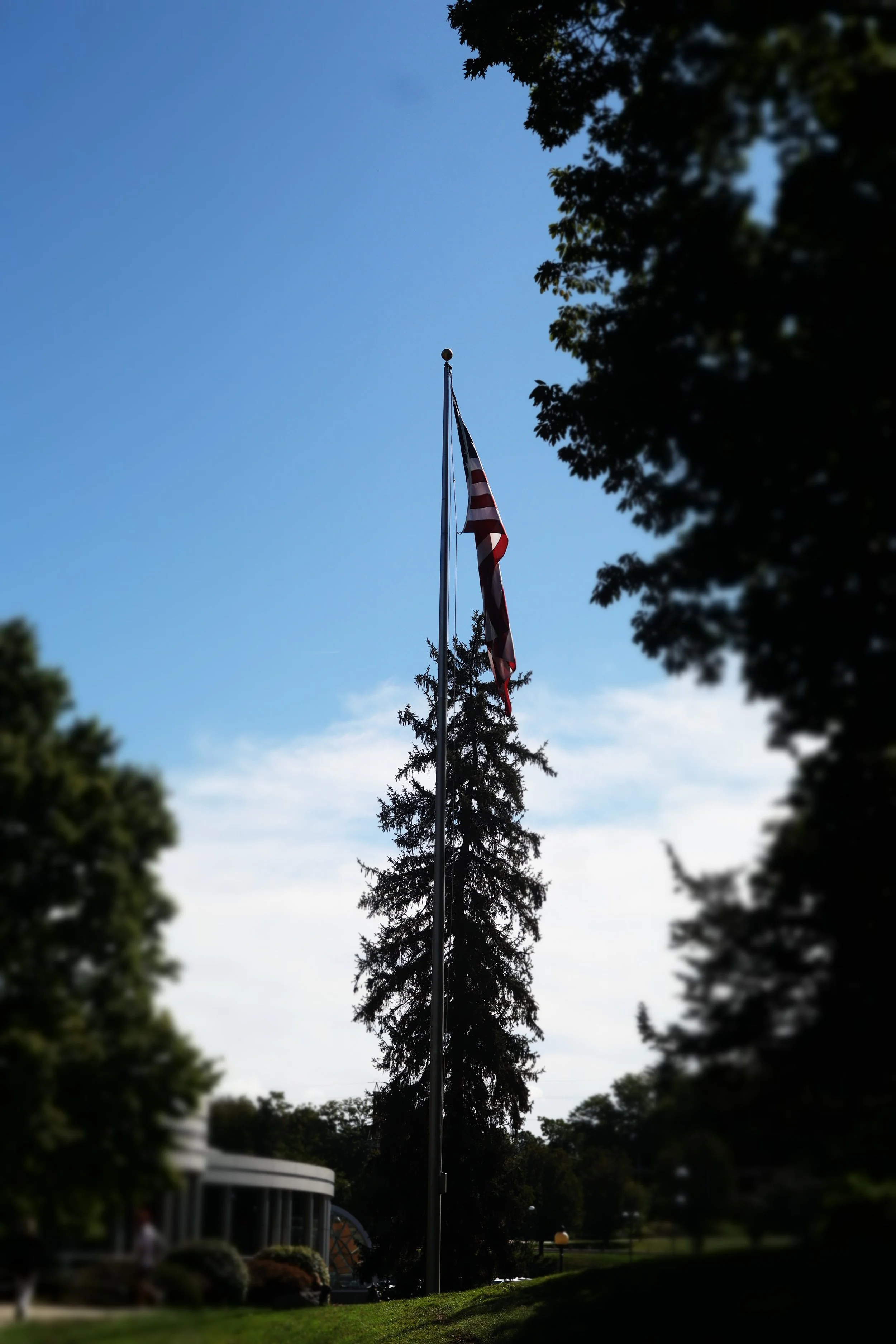Burning Flags: Important Freedom of Speech or Riot Instigator?
The American flag waves over Donnelly Hall on Marist Campus. Credit: Helen Tso '29
The United States of America has always given its people the right to speak however they wish about whatever they wish. As the Trump administration grows, can we really count on our freedom of speech?
On Aug. 25, President Donald Trump signed another executive order that takes away an American Constitutional freedom. This specific order outlaws a very widespread way of protesting, burning the American flag.
The burning of the American flag has been a symbolic speech protected by the first amendment since 1989, when the Supreme Court ruled in favor of Gregory Lee Johnson in Texas v. Johnson. Johnson, while protesting against President Ronald Reagan outside of the 1984 Republican National Convention, burned the flag and was arrested and convicted in a Texan court for the desecration of a venerated object.
The Supreme Court overturned his conviction. Later, Justice William Brennan wrote, "If there is a bedrock principle underlying the First Amendment, it is that the Government may not prohibit the expression of an idea simply because society finds the idea itself offensive or disagreeable,” when citing the Johnson case.
Trump's new executive order attempts to justify itself through this court case while completely contradicting the judgment. The White House website describes “Notwithstanding the Supreme Court’s rulings on First Amendment protections, the Court has never held that American Flag desecration conducted in a manner that is likely to incite imminent lawless action or that is an action amounting to ‘fighting words’ is constitutionally protected.”
What’s also important to note in the executive order is the language used to talk about non-citizens and burning the flag.
The executive order states that federal authorities can “deny, prohibit, terminate, or revoke visas, residence permits, naturalization proceedings and other immigration benefits, or seek removal from the United States, pursuant to Federal law … whenever there has been an appropriate determination that foreign nationals have engaged in American Flag-desecration activity under circumstances that permit the exercise of such remedies pursuant to Federal law.”
Giving these officials these specific powers while this administration's opinion on immigrants has been so prevalent in the media is utilizing fear tactics to prevent protests.
It’s no secret that the current White House views protests as forms of chaos rather than attempts to have voices heard. While cities with large protesting populations, such as Los Angeles and Washington, D.C., are having the National Guard sent to their city, the enforcement against burning the American flag, while disguised as a patriotic gesture, can be looked at as far from it.
Moreover, it may be more disrespectful to outlaw burning the flag than one may think. For a long time, burning the flag has been a way to dispose of the flag in a dignified way. When there was no place to dispose of it or bury it, people were allowed to have a ceremony to burn the flag respectfully. And while this kind of burning is not talked about in the executive order, it does raise the question of what Trump and the order’s enforcers are going to do about those who burn it in respect.
It’s safe to say that Trump’s newest executive order about the burning of the flag will have an interesting impact on the future of protesting and respectful disposal of the flags.
